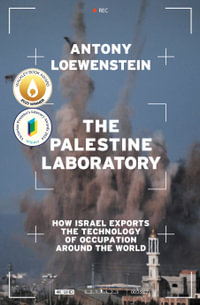As global tourism faces its greatest threat since World War II, the author draws on over 40 years of industry and academic experience to explore the core themes that underpin crises, their impact on the tourism industry and recovery.
Focussing on this emerging issue in within the travel industry and academic tourism research, this author explores crisis management approaches from scholars, governments and tourism associations around the world. A dedicated chapter also covers the impact of Covid-19 on tourism industries and economies across the world and well as how nations from around the world responded to the global pandemic outbreak.
The book is split by theme and features over 20 case studies, including 2020 Australian bush fires, 2019 Sri Lankan terror attack, SARS and Swine Flu, the collapse of Thomas Cook, the global and Greek financial crises and the threat to the Great Barrier Reef.
Discussion questions and activities are included at the end of each chapter.
Suitable reading for students on tourism and tourism crisis management modules.
Industry Reviews
If anyone among us holds the both the practical and academic experience to write about Tourism Crisis and Disaster Recovery, it is Dr David Beirman. Dr Beirman is our 'go to' colleague for the latest insight on previous and current crises and their likely implications for tourism. This is a much needed book that covers an extensive array of themes relevant to crisis and disaster recovery, many of which have been overlooked by the literature to date. This book will no doubt provide essential lessons for both practitioner, student and academic audiences. -- Associate Professor Gabby Walters, University of Queensland Dr David Beirman is a scholar and practitioner with an encyclopedic knowledge of the tourism industry. This timely book provides key insights into the many challenges facing the industry, not just from COVID-19 but across topics that are essential reading for students, tourism managers and those in government agencies tasked with safety and security at destinations around the world. -- Professor Jeff Wilks, Adjunct Professor, Griffith Health David Beirman is undoubtedly one of the worlds most knowledgeable and respected experts on Tourism Crisis and Resilience. His work to support destinations and the tourism industry in general prepare, navigate and recover from crisis continues to provide immeasurable benefits to all who seek his assistance. -- Chris Flynn, CEO, World Tourism Association for Culture & Heritage Well written...accessible and easy to understand...a great text for all levels of university students... This text would help those persons make pragmatic plans for future disruptions and/or crises. -- Craig Webster * Journal of Tourism Futures * The modern world seems, unfortunately, increasingly prone to crises which impact on tourism directly and indirectly while crisis situations can originate within the industry itself. The subject is receiving growing attention from the media and scholars as well as practitioners, but there is still much work to be done. David Beirman's new book makes a major contribution to the literature, promoting awareness of the various and complex forms of tourism crises. It examines underlying causes of crises, their characteristics, consequences and management challenges. Written in a scholarly, yet very accessible style, the book conveys tourism's propensity to crises and the dynamics of their evolution alongside strategies for managing the process. Especially valuable are the case studies from around the world which include much more (relevant) detail than usually offered in such examples and provide fresh perspectives. The book will be of great interest and value to both scholars and practitioners as well as the more general public, promoting understanding and stimulating discussion. The reviewer would have welcomed a concluding section, underlining and integrating central strands and suggesting key directions for future research, but this omission does not detract from the overall quality of the book. Although a salutary reminder of tourism's vulnerability to multiple types of crises and often severely damaging results, the book is optimistic in tone and highlights the resilience of tourism and its ability to recover. It demonstrates the need for good management and analyses alternative and effective approaches on the part of both public and private sector in preparing for and dealing with crises. In summary, Beirman has produced a comprehensive and excellent book which examines a vital theme in an interesting, lively and thought-provoking way. It skillfully balances the theoretical and practical in its approach, affords a wealth of new information and intelligent insights and should appeal to a wide audience. -- Joan C Henderson Informative, well-written, and in an accessible and easy-to-understand style. It covers a wide range of topics such as crisis communication, resilience, governance, training and education, accessibility, and many other topics that are necessary for understanding the main theme. The case studies and concrete examples of destinations presented are one of the strengths of the book, providing a practical insight into the components of a crisis and recovery strategies...David Beirman's book "Tourism Crises and Destination Recovery" provides an overview of how tourism crises can be managed, prevented, and overcome. Thus, providing readers with practical frameworks and tools to navigate crises within the tourism industry. This book is highly recommended for those interested in the subject. -- Amina Chebli Tourism Crisis and Destination Recovery" by David Beirman (2022) is a useful resource for tour operators and travel wholesalers. CATO members may find David Beirman's latest book an interesting read. This comprehensive book delves into strategies for navigating crises in the tourism industry and effectively recovering destinations. Beirman's insights from over four decades in the industry will equip professionals with the knowledge needed to manage challenges and contribute to sustainable recovery efforts. -- Brett Jardine and Dennis Bunnik
























